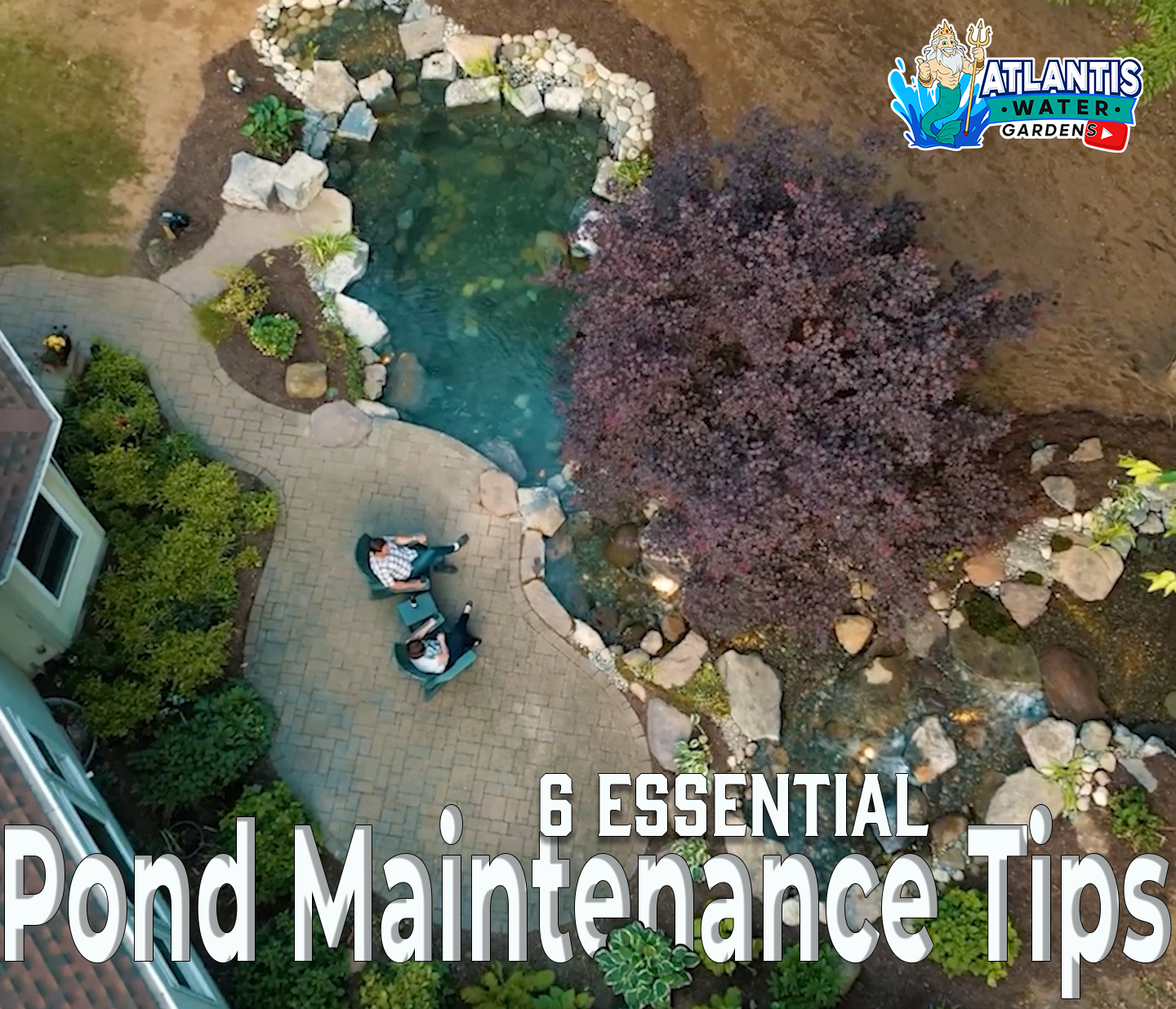How can I keep up with New Jersey pond maintenance in summer?
☀️ Summer is prime time for pond owners in New Jersey. The blooms are thriving, the fish are active, and your water feature becomes a centerpiece of your backyard. But all that beauty comes with responsibility—if you want to avoid green water, sluggish fish, and foul odors, it’s time to get serious about maintenance.
Whether you have a koi pond in Morris County or a decorative water garden in Essex County, the following expert strategies will help you stay ahead of seasonal challenges and keep your pond healthy, clear, and beautiful.
🌿 Why summer pond care is crucial
During the summer, sunlight hours increase and temperatures rise—creating the perfect environment for algae blooms, oxygen depletion, and increased biological waste from fish and plants. Without proper care, your pond can quickly go from serene to stressful, both for you and your aquatic life.
Summer maintenance isn’t just about aesthetics—it’s essential for the health of your ecosystem. Let’s dive into the top six tips every New Jersey pond owner should follow.
✅ 6 essential New Jersey pond maintenance tips
1. Clean your filters like a pro 🧽
Mechanical and biological filtration are the backbone of a healthy pond. In summer, your filter collects more debris—think pollen, leaves, and excess fish waste. Clean mechanical filters weekly, and rinse biological media in pond water (not tap) to preserve beneficial bacteria. This keeps ammonia and nitrite levels under control.
Pro tip: Consider upgrading to a pressure filter or adding a pre-filter for easier cleaning and better flow.
2. Test water quality weekly 🔬
Pond chemistry can shift rapidly in summer. Use a reliable test kit or digital meter to monitor:
- pH (ideal: 6.8–8.2)
- Ammonia & Nitrites (should be 0 ppm)
- KH & GH (affects pH stability and fish health)
If parameters are off, partial water changes and bacteria additives can help. Never guess—water that looks clear can still be toxic.
3. Do small, regular water changes 💧
Instead of dramatic water swaps, aim for 10–20% weekly changes. This reduces waste buildup, balances minerals, and gives your fish fresh, oxygen-rich water.
Always use dechlorinator if you’re using municipal water in areas like Union County. And avoid topping off only—dilution is the solution to pollution!
4. Beat algae with plants and bacteria 🌱
Excess algae loves sun and nutrients. Outcompete it by adding:
- Floating plants like water lettuce or hyacinth
- Submerged oxygenators
- Barley straw extract or natural bacteria products
Remove string algae manually with a rake or brush. Want low-maintenance clarity? Install a UV clarifier—especially useful in Somerset County’s sunny backyards.
5. Maximize aeration and circulation 🌬️
Hot water holds less oxygen, and your fish feel it. Aerators, waterfalls, and spitters increase dissolved oxygen and reduce stagnation. Place aeration near deeper zones for koi comfort.
In densely stocked ponds, an additional air pump can be a game-changer.
6. Feed your fish the smart way 🐟
Your koi are hungry—but resist overfeeding! Offer only what they’ll eat in 2–3 minutes, once or twice a day. Leftovers become sludge and spike nutrient levels.
Use high-protein summer blends and skip feeding during water changes or extreme heat.
🪻 Give your pond plants a summer checkup
Aquatic plants like lilies and pickerel rush explode in warm months. Trim yellowing leaves and divide crowded roots to prevent rot and allow light to reach submerged areas.
Healthy plants = less algae, more shade, and cleaner water.
💧 Monitor water loss like a pro
Evaporation is normal, but keep an eye out for sudden drops. Leaks often hide near liner folds or waterfalls. Add a timer to your hose or invest in an autofill valve.
Need help identifying leaks? Visit our post on pond leak prevention.
🧰 Consider a professional seasonal tune-up
Not everyone has time (or interest) to manage weekly testing and filter maintenance. Hiring a pond pro gives you peace of mind and keeps your pond running efficiently all season.
A mid-summer checkup can prevent costly repairs and ensure your pond stays balanced.
Looking for more great tips, tricks and quality content? Check out our YouTube Channel!
🤔 FAQ: New Jersey Summer Pond Care
How often should I clean my koi pond in Morris County?
Clean your mechanical filters weekly and rinse bio-media every 2–3 weeks. Monthly water changes help keep nutrient levels in check. This is standard for koi pond cleaning Morris County.
What’s the best way to prevent algae in Essex County ponds?
Combine shade, beneficial bacteria, and UV clarifiers for long-term success. Aquatic plants are key. Follow these steps for garden pond maintenance Essex County.
Why is my pond water turning green in Somerset County?
Green water often signals a planktonic algae bloom due to excess nutrients and direct sun. Boost aeration and limit feeding. Learn more with pond algae control Somerset County.
Can my fish survive summer without extra oxygen in Union County?
They might—but it’s not ideal. High temps reduce oxygen, and stagnant zones form. Aerators or waterfalls make a huge difference. Smart planning for koi pond care Union County.
Looking for more tips, tricks and awesome projects we create!? Check out our other blogs:
How can I upgrade my New Jersey yard with garden spheres?
New Jersey Waterfall Installation Finished in Just 1 Day?
Why is my New Jersey pond brown? 3 easy fixes that work!
